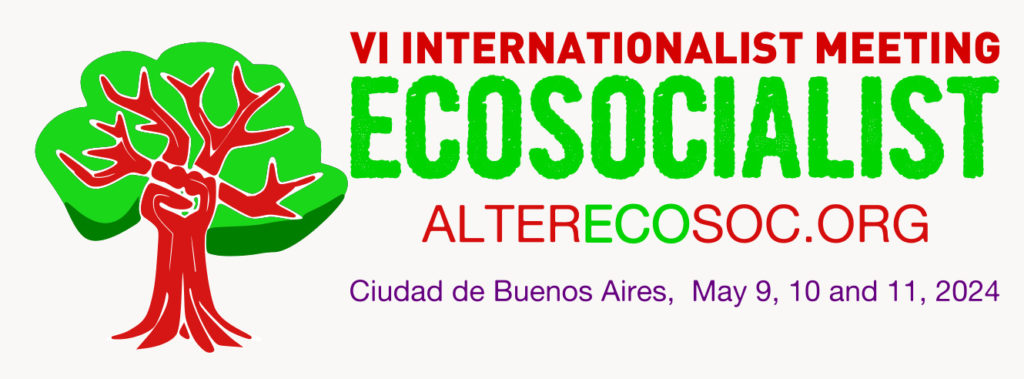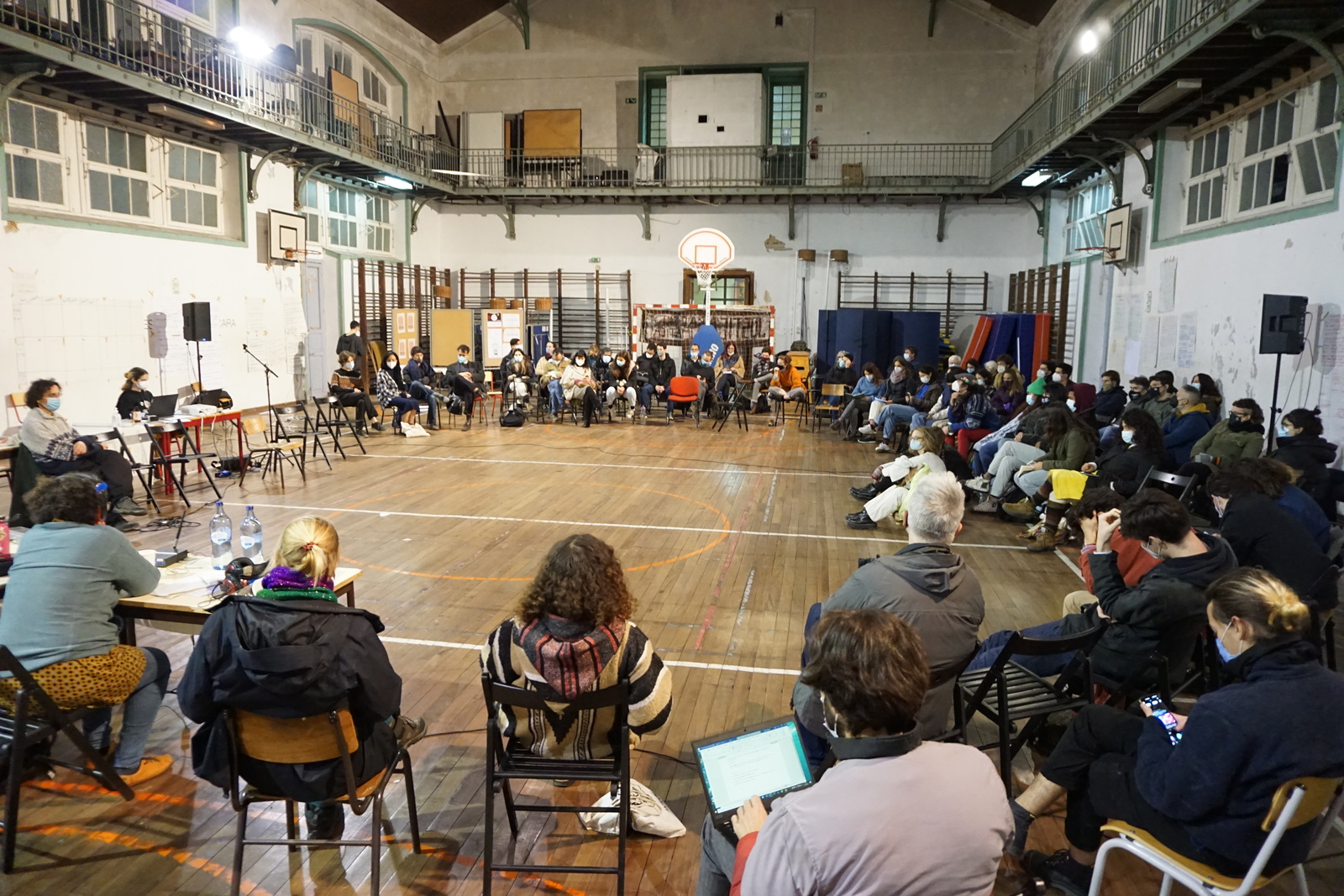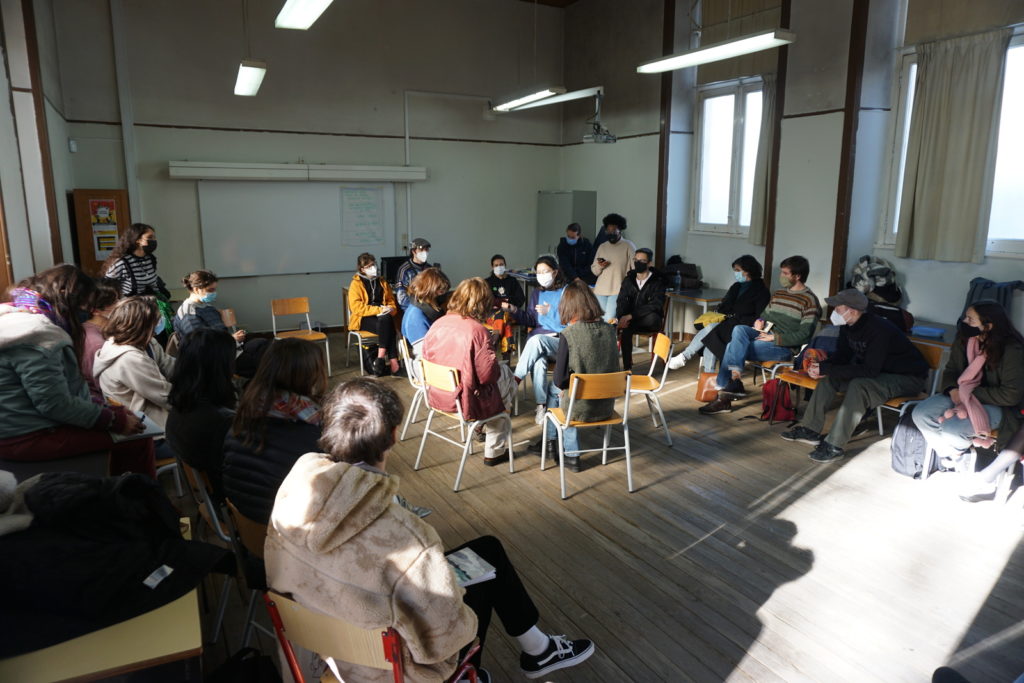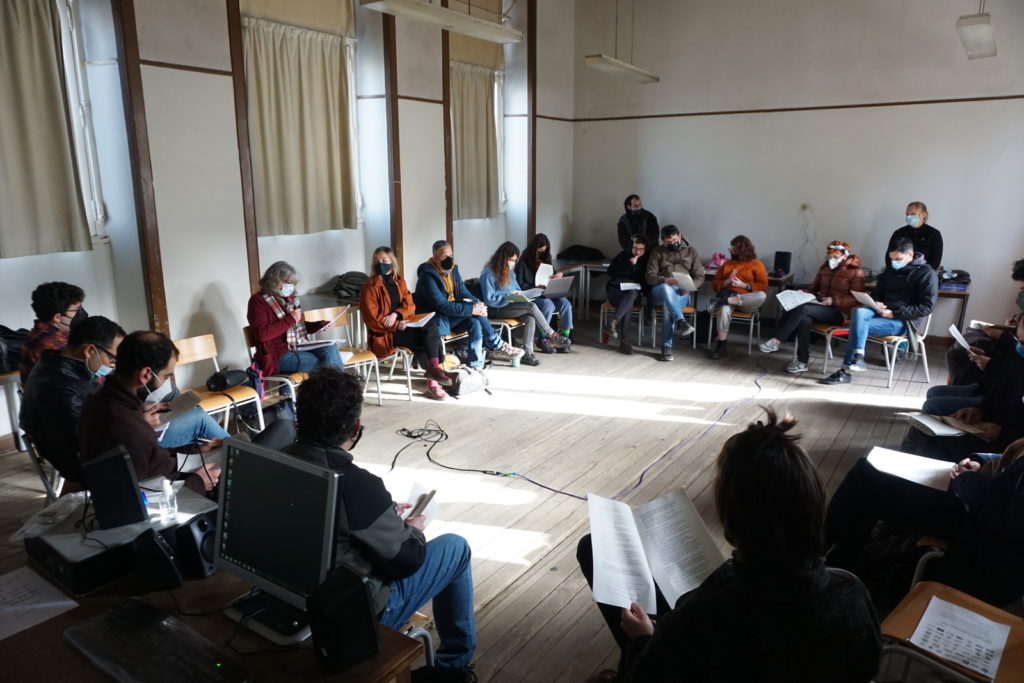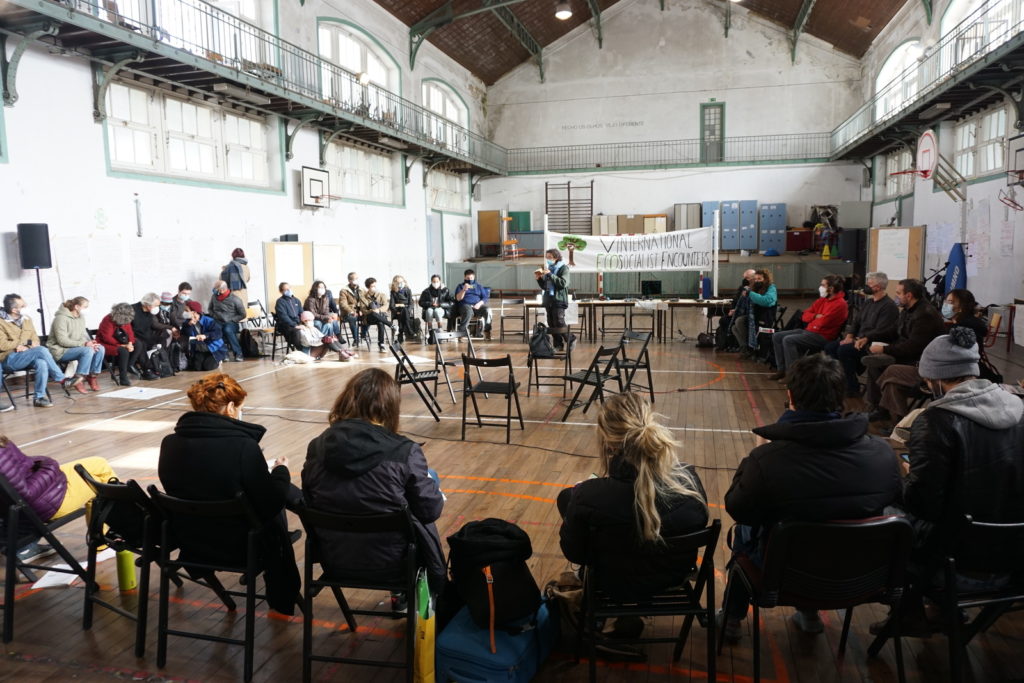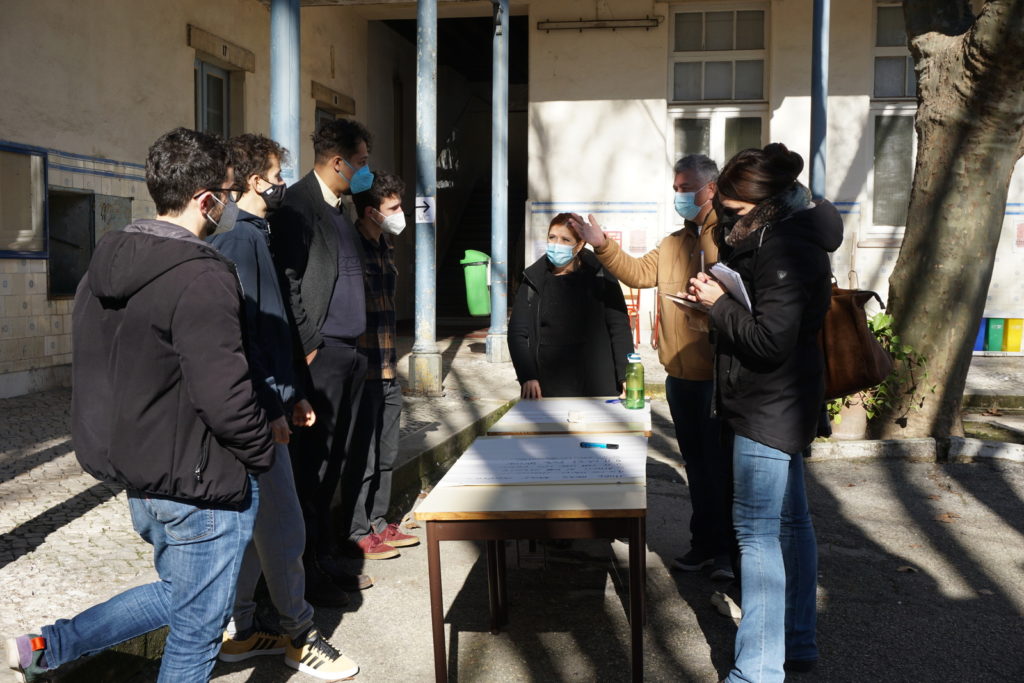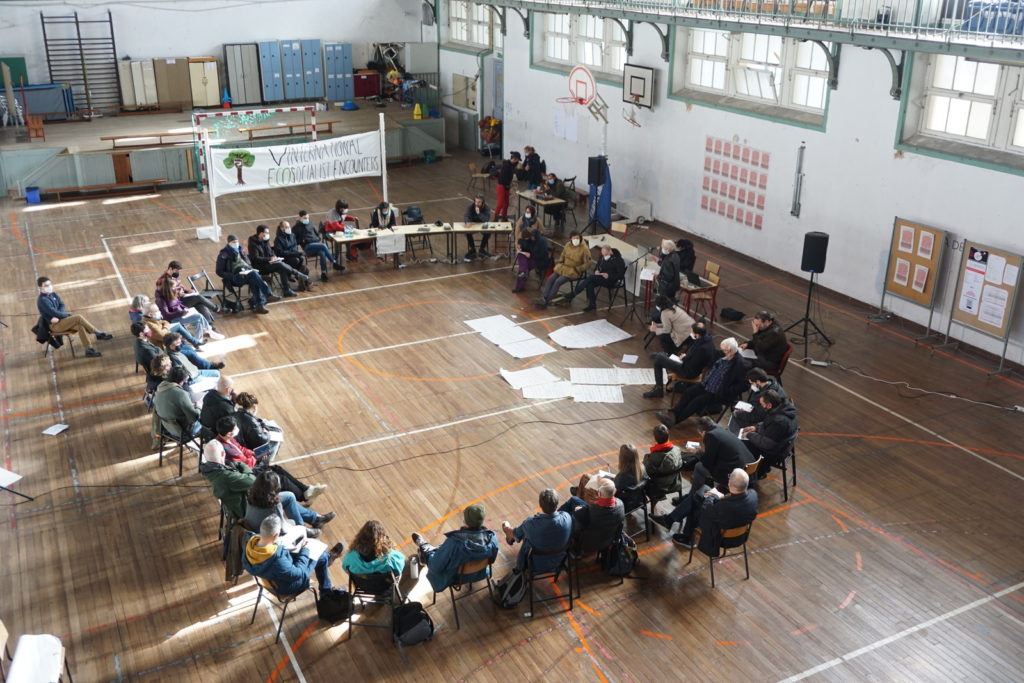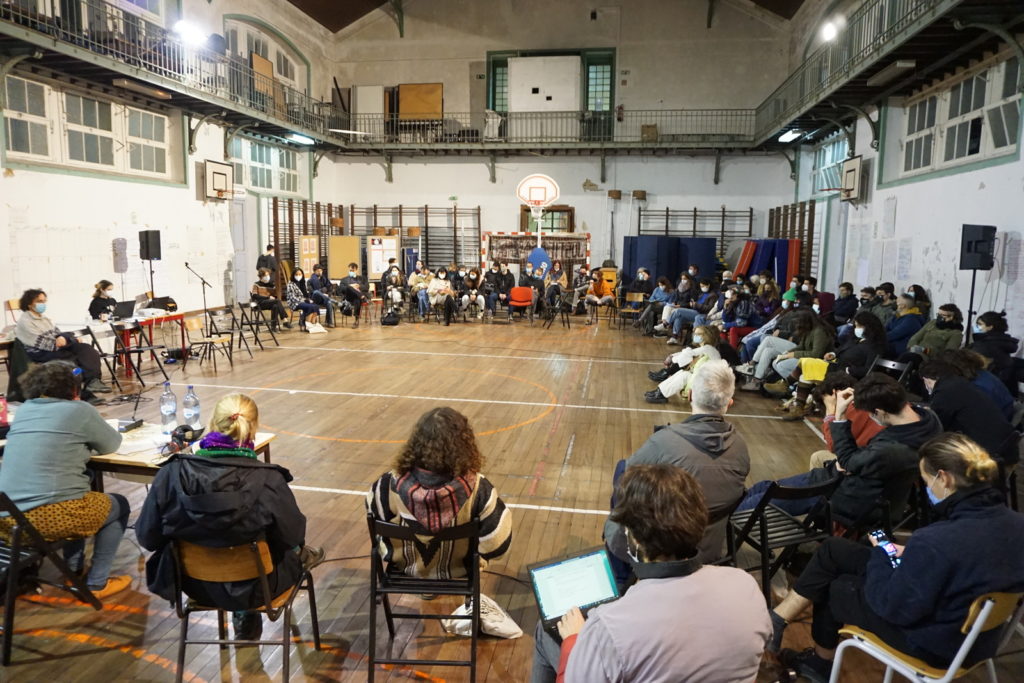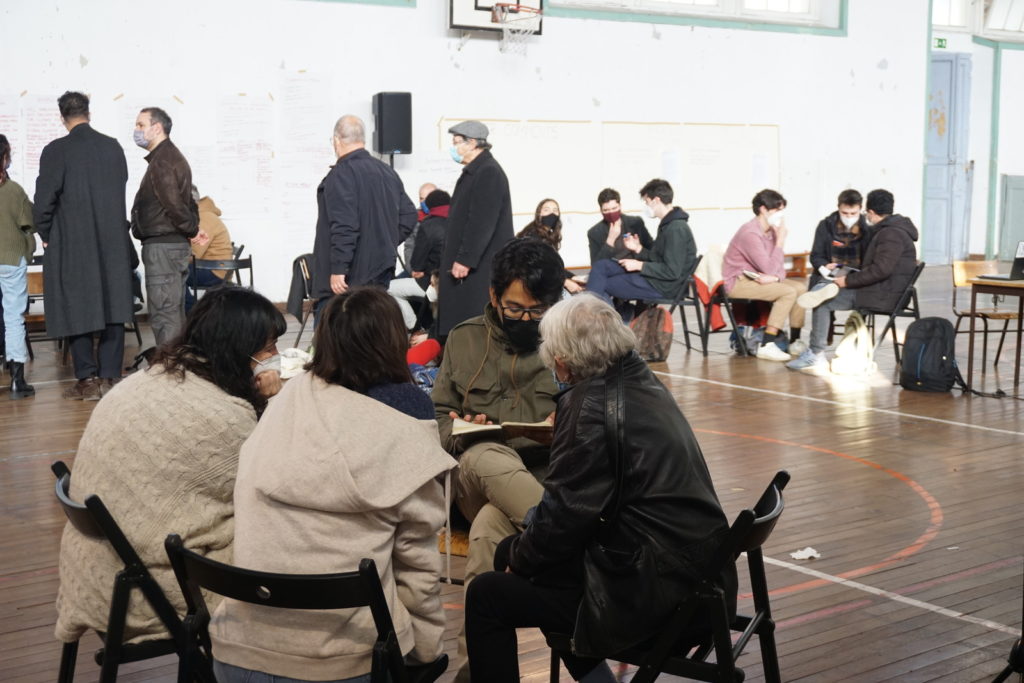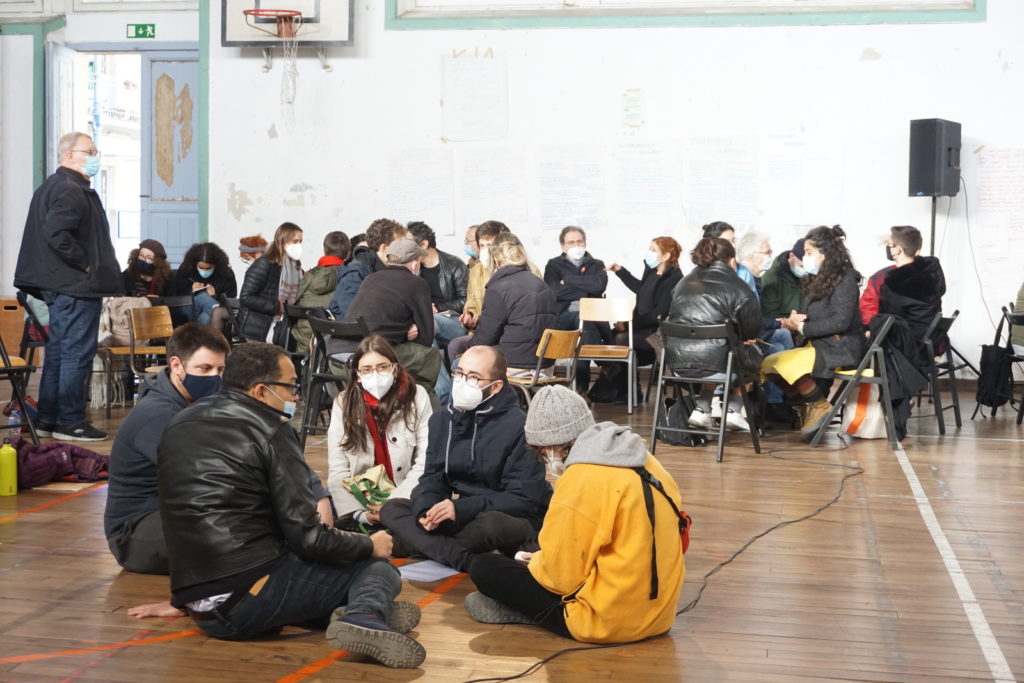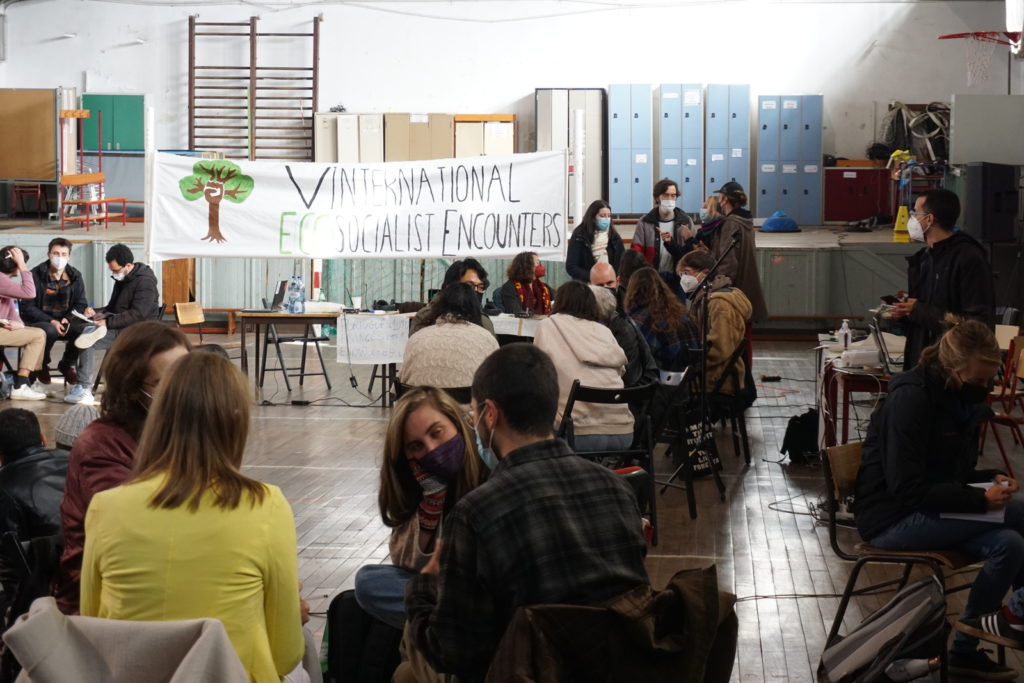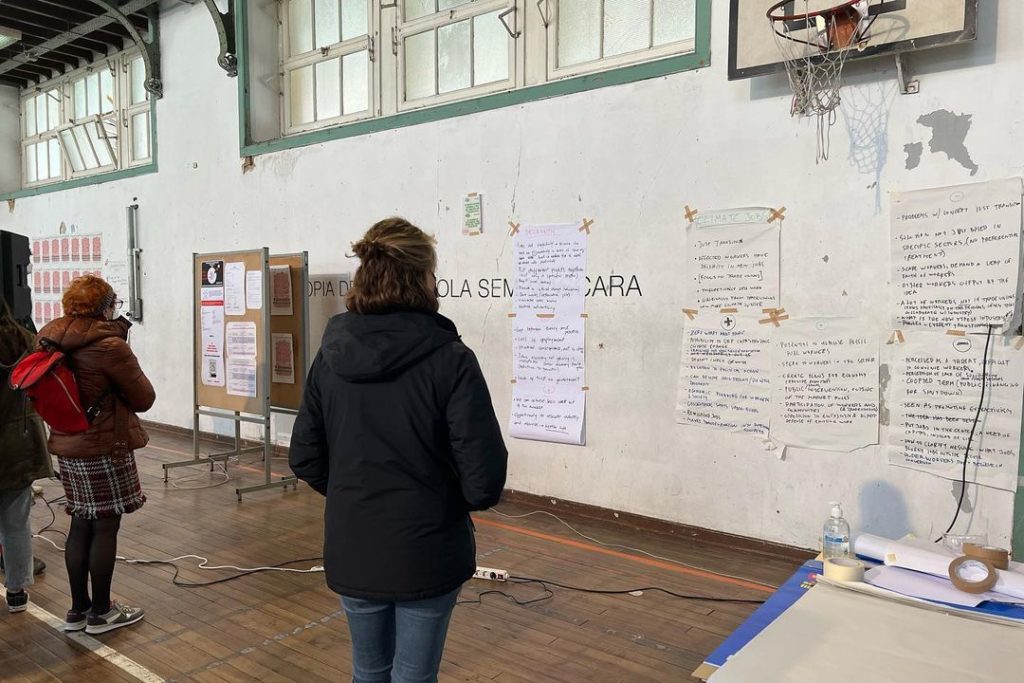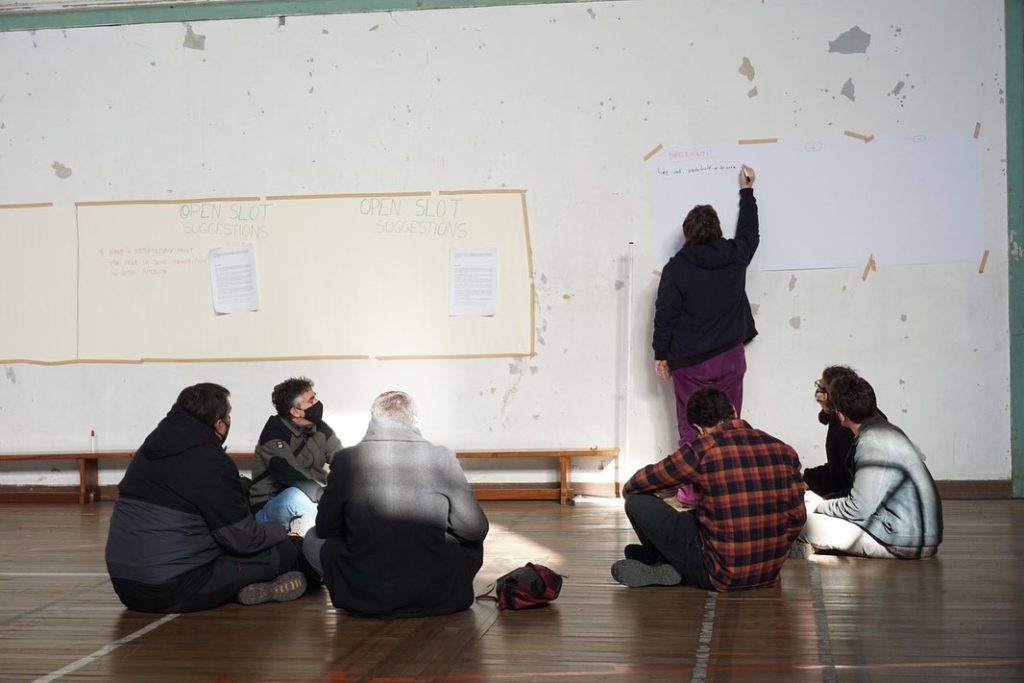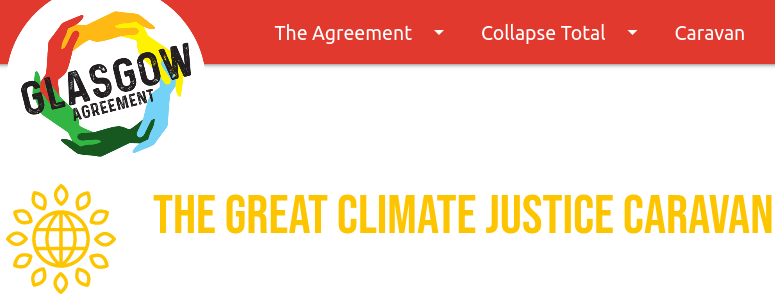On May 9, 10 and 11, 2024, the VI International Ecosocialist Meeting and the I Latin American and Caribbean Ecosocialist Meeting will be held in Buenos Aires.
The VI Ecosocialist Meeting is the first to be held in Latin America and the Caribbean (Abya Yala), and follows the outlines of the previous meetings held in Europe. It seeks to nourish the debates from the accumulation of previous meetings. The aim is to move from denunciations and defensive struggles to initiate the construction of a global strategy to confront the structural causes generated by capitalist commodification and depredation and to advance towards a model of society that is not governed by the profits of companies and other interest groups, but in terms of social needs in balance with nature and from an eco-feminist and anti-racist perspective.
The meeting will include panels, workshops, plenaries and spaces for exchange between collectives, activists and organizations in struggle to collectively walk the path towards an agenda and a program of struggle for Ecosocialism. In order to arrive at the meeting with inputs and some defined lines of work, we are organizing online activities that can be followed through our Y ouTube channel.
We understand that the diversity that characterizes us as organizations defending the commons goods and fighting for a world without exploitation is our greatest strength, therefore we invite everyone to be part of the working groups and, above all, of the construction of our program, which will be the organizing axis of the debates that we want to give in this historic moment. The construction is open to collaborations and we encourage you to participate organically in this instance in order to advance in the discussions that seem indispensable to us.
The Meeting will have a hybrid instance, at least for the main debates, in order to facilitate the participation of those who cannot attend in person. All the information will be socialized through our networks and our mailing, whoever is interested in being part of it can request access to the list through the link: https://groups.google.com/g/6encuentroecosocialista
In order to encourage and give space to all the views interested in the construction of an ecosocialist horizon, we are receiving inputs such as texts and/or other materials that may be of interest to socialize with the collective that will participate in the meeting. The materials can be sent by mail: 6encuentroecosocialista@gmail.com or by messaging networks to the number +54 1135648839.
We are starting to elaborate the program of the Encounter. We want it to reflect the proposals of the various groups that will be present. We invite you to send us your proposals and to participate in our meetings of this working group through this link. We already have several thematic axes, such as ecofeminism, militarism, syndicalism, extractivism and ecosocialist strategy and construction.
The First Latin American and Caribbean Ecosocial Meeting aims to give continuity to the ecosocial debates based on the territories and issues of the region, and intends to continue with the second meeting to be held on the occasion of COP 30, to be held in Brazil next year. For the construction of the process of the II Meeting, the Brazilian Network of Ecosocialists has proposed to facilitate and promote the necessary exchanges for the formation of a broad and diverse coordination of collectives and activists in view of the organization of the II Meeting in Belém.
In this VI call, we would like to count on the signature of the organizations and/or individuals who wish to help spread and build the initiative, for which we share our call.
We are in the process of organizing logistics to receive everyone in the best possible way, so we ask those who wish to participate in the activities to fill out our registration form.
The context in which we have to organize this event in Argentina is that of the advance of an extreme right that aims to destroy the rights won by trade unions, feminisms and organizations that fought – and continue to fight – for more and better democracy, confronting dictatorships and neoliberal projects. However, all this scenario also summons us to build possible horizons from the socio-political and ecological struggles from below and to the left. Today, more than ever, Argentina and Latin America need internationalist support and solidarity. Therefore, our expectation is to count on the presence of numerous comrades for a fraternal debate.
In order to make the meeting possible, we ask organizations, collectives and individuals who can and/or want to collaborate financially to do so through the following account. In this way we can begin to prepare the spaces and guarantee the transportation, accommodation and food for the companions, as well as the necessary equipment for the online transmissions.
IBAN ES25 1491 0001 2221 7799 8321 BIC TRIOESMMXXX
Titular ASOCIACIÓN ANTICAPITALISTAS MOVIMIENTO POR EL PODER POPULAR
Concepto: Aportación VI Encuentros Ecosocialistas
We look forward to seeing you in Buenos Aires!
First signatures
Anticapitalist Resistance / Anticapitalistas – España / Articulação Nacional das Mulheres Indígenas Guerreiras da Ancestralidade – Brasil / ATTAC Argentina / CADTM – AYNA/ Centelhas (PSOL) – Brasil / CLATE – Argentina / Climaximo – Portugal / Corriente Política de Izquierda (CPI) – Argentina / EcosBrasil / Ekologistak Martxan – País Vasco / ESK sindikatua- País Vasco / Extinction Rebellion South Africa / Gauche Anticapitaliste – Bélgica
/ Groupe écosocialiste de solidaritéS – Suiza / Grupo Iniciativa Ecosocialista en Chile / Gune Ekosozialista – País Vasco / Heñói – Paraguay / Huerquen Comunicación – Argentina / Insurgência (PSOL) – Brasil / Internacional de Servicios Públicos (ISP) / Jauzi Ekosoziala – País Vasco / La Cultural de la Costa – Argentina / LAB – País Vasco / Marabunta – Argentina
/ Marcha Plurinacional de los Barbijos – Argentina / Movimento Pela Soberania Popular na Mineração (MAM) – Brasil / Multisectorial Paren de Fumigarnos – Santa Fe – Argentina / Museo del Hambre – Argentina / Nouveau Parti Anticapitaliste – Francia / Nuestramérica – Argentina / Observatorio Petrolero Sur – Argentina / Plataforma América Latina y el Caribe Mejor Sin TLC / Poder Popular – Argentina / Propuesta Sur – Argentina / Rebelião Ecossocialista – Brasil / Rede Brasileira de Ecossocialistas – Brasil / Setorial ecossocialista del PSOL – Brasil / SolidaritéS – Suiza / Steilas sindikatua – País Vasco / Subversión – Argentina / Subverta (PSOL) – Brasil / Transnational Institute (TNI) / Yasunidxs – Ecuador
Adrian Ruiz / Alejandro Horowicz / Alfonso Caño Reyero / Andoni Louzao Bustamente / Andrea Leonett / Arlindo Rodrigues / Aude Martenot / Beatriz Rajland / Cecília Feitosa / Cecilia Piérola / Christine Poupin / David Fajardo / Eduardo Giesen / Endika Perez Gomez / Evelyn Vallejos / Fernando E. Tecuatl / Fernando Gonzaléz Cantero / Flavio Serafine / Francisca Fernández Droguett / Gabriel Casnati / Gabriel E. Videla / Hugo Milito / Iñaki Bárcena / Iñaki Uribarri / Iñigo Antepara / Iratxe Álvarez Reoyo / Iratxe Delgado Arribas / Ivan Moraes / Janilce Magalhães / Javier Aguayo / Javier Echaide / Jeanne Planche / Joana Bregolat / João Camargo / Joaquin Vega Padial / José Manuel Gutiérrez Bastida / José Seoane
/ Juan Tortosa / Julio Gambina / Licia Garcia / Luciana Ghiotto / Lucien Durand / Manuel Gari / Marcos Filardi / María Elena Saludas / Mariana Souza / Marije Etxebarria Ezpeleta / Mario Bortolotto / Marisa Castro Delgado / Martin Lallana / Martín Mosquera / Mauricio Cornaglia / Mauricio Laxe / Michel Loẅy / Moira Millan / Natalia Chaves / Nathalie Delbrouck / Ollivier de Marcellus / Professor Túlio / Renan Dias Oliveira / Renato Roseno / Ritxi Hernández Abaitua / Rodrigo Andrade / Sabrina Fernandes / Sara Ibáñez Ortega / Sébastien Beltrand / Sébastien Brulez / Sergio Abraham Esparza / Sergio Esparza / Steven Tamburin / Talíria Petrone / Tamara Perelmuter / Tárzia Medeiros / Teo Frei / Tom Kucharz / Tomi Etxeandia Egidazu / Vanessa Dourado / Yayo Herrero

